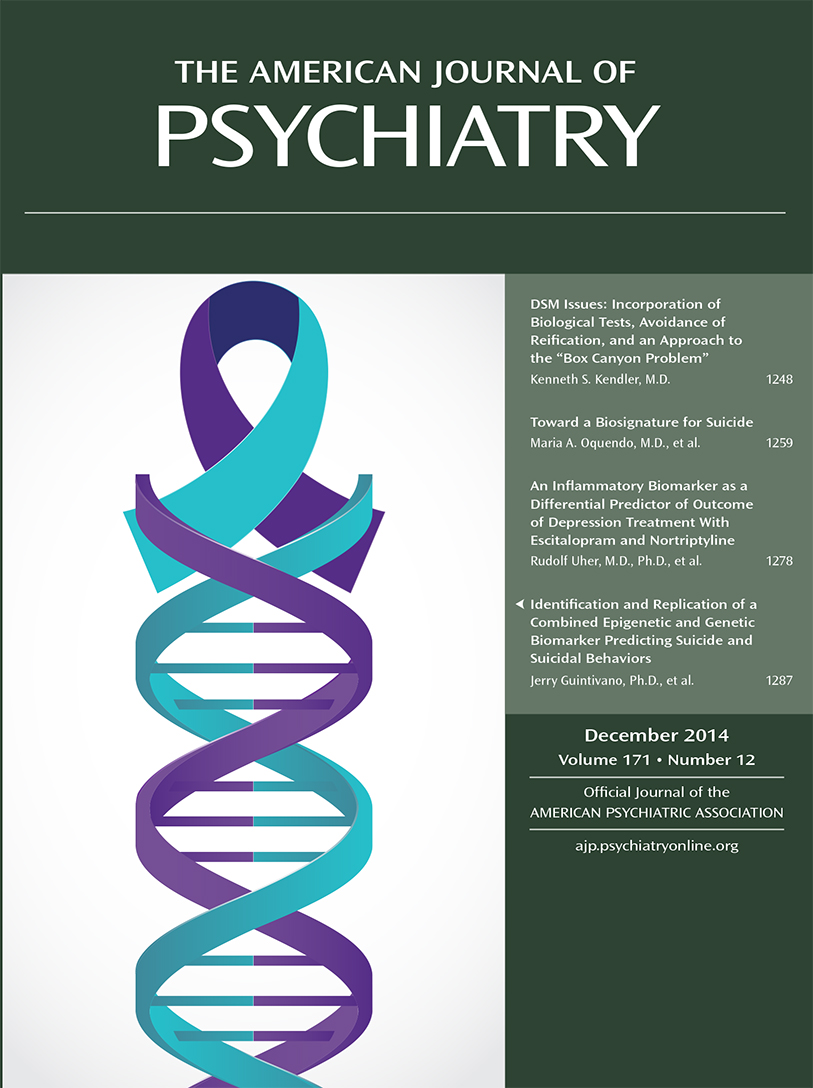Glutamate Metabolism in Major Depressive Disorder
Abstract
Objective:
Emerging evidence suggests that abnormalities in amino acid neurotransmitter function and impaired energy metabolism contribute to the underlying pathophysiology of major depressive disorder. To test whether impairments in energetics and glutamate neurotransmitter cycling are present in major depression, we used carbon-13 magnetic resonance spectroscopy (13C MRS) to measure these fluxes in individuals diagnosed with major depression relative to healthy comparison subjects.
Method:
Proton (1H) MRS and 13C MRS data were collected for 23 medication-free individuals with major depression and 17 healthy subjects. 1H MRS provided total glutamate and GABA concentrations, and 13C MRS, coupled with intravenous infusion of [1-13C]glucose, provided measures of the neuronal tricarboxylic acid cycle for mitochondrial energy production, GABA synthesis, and glutamate/glutamine cycling from voxels situated in the occipital cortex.
Results:
Mitochondrial energy production of glutamatergic neurons was 26% lower in the depression group. Paradoxically, no difference was found in the rate of the glutamate/glutamine cycle (Vcycle). A significant correlation was observed between glutamate concentrations and Vcycle in the overall sample.
Conclusions:
The authors interpret the reduction in mitochondrial energy production as being due to either mitochondrial dysfunction or a reduction in proper neuronal input or synaptic strength. Future MRS studies could help distinguish these possibilities.



